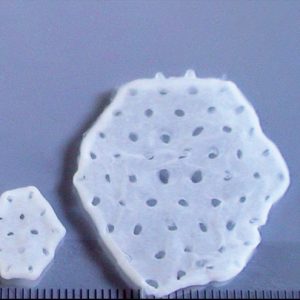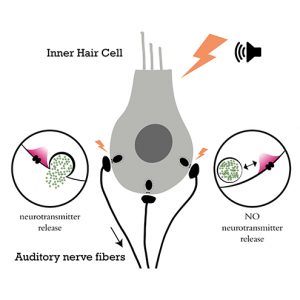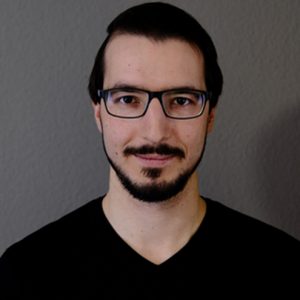10.02.2021
Authors Sertel SM, von Elling-Tammen MS, Rizzoli SO Journal Journal of Neuroscience Citation J Neurosci. 2021 Feb 10;41(6):1157-1173. Abstract The activity and the metabolism of the brain change rhythmically during the day/night cycle. Such rhythmicity is also observed in cultured neurons from the suprachiasmatic nucleus, which is a critical center
09.02.2021
Erste klinische „Herzpflaster“-Studie weltweit
Erste Anwendung am Menschen: Die BioVAT-HF-DZHK20-Studie untersucht den Einsatz von aus Stammzellen gewonnenem Herzmuskelgewebe zur Behandlung von Patienten mit schwerer Herzinsuffizienz. Durch das Aufbringen von im Labor gezüchtetem Herzmuskelgewebe soll die Pumpfunktion von erkrankten Herzen nachhaltig verbessert werden. Die multizentrische klinische Studie wird mit der Rekrutierung von Patienten mit schwerer
08.02.2021
Transcription activation depends on the length of the RNA polymerase II C-terminal domain
Authors Sawicka A, Villamil G, Lidschreiber M, Darzacq X, Dugast-Darzacq C, Schwalb B, Cramer P Journal EMBO Journal Citation EMBO J. 2021 Feb 8:e107015. Abstract Eukaryotic RNA polymerase II (Pol II) contains a tail-like, intrinsically disordered carboxy-terminal domain (CTD) comprised of heptad-repeats, that functions in coordination of the transcription cycle
08.02.2021
Post-transcriptional regulation by the exosome complex is required for cell survival and forebrain development via repression of P53 signaling
Authors Ulmke PA, Xie Y, Sokpor G, Pham L, Shomroni O, Berulava T, Rosenbusch J, Basu U, Fischer A, Nguyen HP, Staiger JF, Tuoc T Journal Development Citation Development. 2021 Feb 8;148(3):dev188276. Abstract Fine-tuned gene expression is crucial for neurodevelopment. The gene expression program is tightly controlled at different levels,
05.02.2021
Synaptic diversity broadens the range of sound we can hear
Hearing occurs when sensory hair cells in the inner ear convert sound into neural signals transmitted to the brain. The sensory hair cells have about a dozen communication points with the auditory nerve fibers, called synapses. Scientists from the Institute for Auditory Neuroscience at the University Medical Center Göttingen discovered
05.02.2021
Breites Klangspektrum dank synaptischer Vielfalt
Hören entsteht, wenn Sinneshaarzellen im Innenohr Schall in neuronale Signale umwandeln, die an das Gehirn weitergeleitet werden. Die Sinneshaarzellen haben etwa ein Dutzend Kommunikationspunkte mit den Hörnervenfasern, sogenannte Synapsen. Wissenschaftler des Instituts für Auditorische Neurowissenschaften an der Universitätsmedizin Göttingen entdeckten, dass die Synapsen einer einzelnen Sinneshaarzelle Schallinformationen unterschiedlich verarbeiten. Diese
05.02.2021
Two mechanisms drive pronuclear migration in mouse zygotes
Authors Scheffler K, Uraji J, Jentoft I, Cavazza T, Mönnich E, Mogessie B, Schuh M Journal Nature Communications Citation Nat Commun 12, 841 (2021). Abstract A new life begins with the unification of the maternal and paternal chromosomes upon fertilization. The parental chromosomes first become enclosed in two separate pronuclei
05.02.2021
Promotionspreis der Studienstiftung für neurowissenschaftliche Hörforschung
Dr. Alexander Dieter, Nachwuchswissenschaftler in den Neurowissenschaften und Erstautor der MBExC-Publikation “μLED‐based optical cochlear implants for spectrally selective activation of the auditory nerve” (Sommer 2020 im EMBO Molecular Medicine Journal veröffentlicht), ist von der Studienstiftung des deutschen Volkes mit einem Promotionspreis ausgezeichnet worden. Er erhielt den Preis für seine Doktorarbeit,
04.02.2021
Sulthiame impairs mitochondrial function in vitro and may trigger onset of visual loss in Leber hereditary optic neuropathy
Authors Reinert MC, Pacheu-Grau D, Catarino CB, Klopstock T, Ohlenbusch A, Schittkowski M, Wilichowski E, Rehling P, Brockmann K Journal Orphanet Journal of Rare Diseases Citation Orphanet J Rare Dis. 2021 Feb 4;16(1):64. Abstract Background: Leber hereditary optic neuropathy (LHON) is the most common mitochondrial disorder and characterized by acute
04.02.2021
Ribosome-bound Get4/5 facilitates the capture of tail-anchored proteins by Sgt2 in yeast
Authors Zhang Y, De Laurentiis E, Bohnsack KE, Wahlig M, Ranjan N, Gruseck S, Hackert P, Wölfle T, Rodnina MV, Schwappach B, Rospert S. Journal Nature Communications Citation Nat Commun. 2021 Feb 4;12(1):782. Abstract The guided entry of tail-anchored proteins (GET) pathway assists in the posttranslational delivery of tail-anchored proteins,





